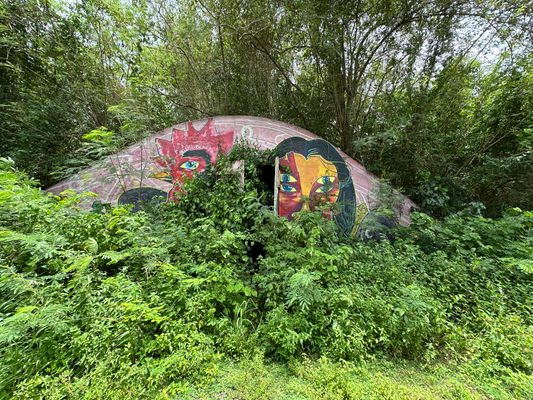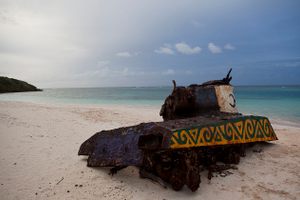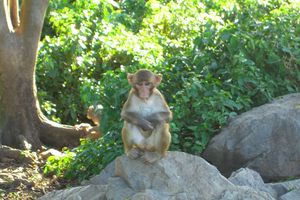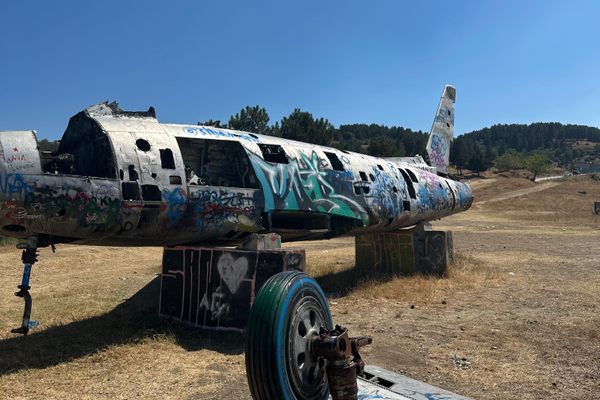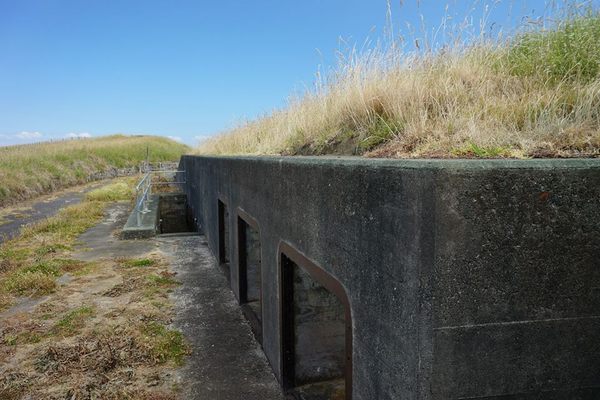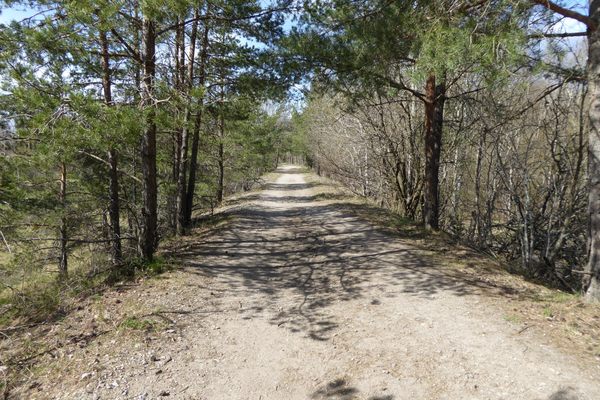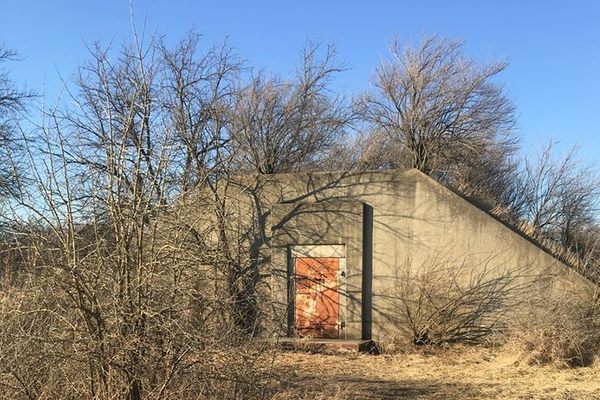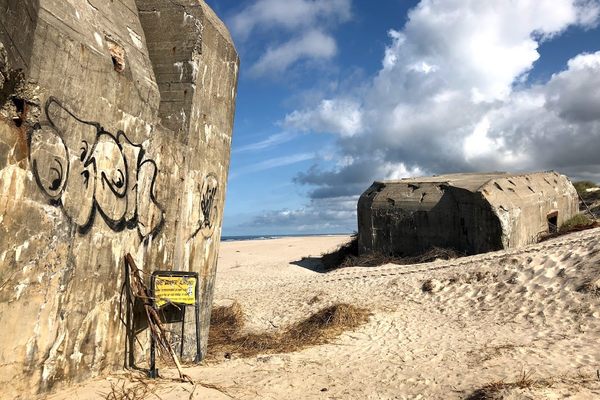About
During World War II about two-thirds of the small island of Vieques was purchased by the US Navy. The local population continued to live in the middle section of the island while the Western third was developed as a munitions bunker storage facility (becoming what's referred to today as a very large "Naval Weapons Station") and the Eastern third was developed as a naval bombing range to train Navy and Marine Aviators.
After WWII, the military continued to use the bomb training field during the Korean and Vietnam Wars, purportedly causing damage to the ecology of the island. Amid increasingly strident political pressure, the US Navy elected to decommission the facilities in 2003. The contents of the reinforced concrete bunkers were transferred off Vieques to Mainland weapons stations and today the bunkers stand open with a few being padlocked by locals as hurricane-proof personal storage. The bombing range at the Eastern end of the island, on the other hand, contains 50 years' worth of shrapnel and unexploded (dud and live) ordinance. It continues to be a restricted area. The range is being actively cleaned up today with official forecasts it might take until 2032 to complete.
The cleanup is being performed by US Navy contractors--including 30 local residents who've been specially trained in handling unexploded naval munitions. Source: 2021 US GAO report to the US Congress on the Vieques/Culebra cleanups.
Related Tags
Know Before You Go
IMO, the Bioluminescent Bay on Vieques (Bahia Bioliminescente) is what makes the ferry (and overnight) trip worthwhile. A double kayaking living underwater Light Show with a grand view of the Milky Way tossed in as an extra!
A cab from Vieques City to Esperanza (book a BnB there for a night) will take you past dozens of the bunkers (seen one; seen them all) and put you next door to the pickup place for the Bahia. Be aware: we didn't have any problems but the ferry service to/from Ceiba PR can be interrupted by weather conditions.
Community Contributors
Added By
Published
March 20, 2014




